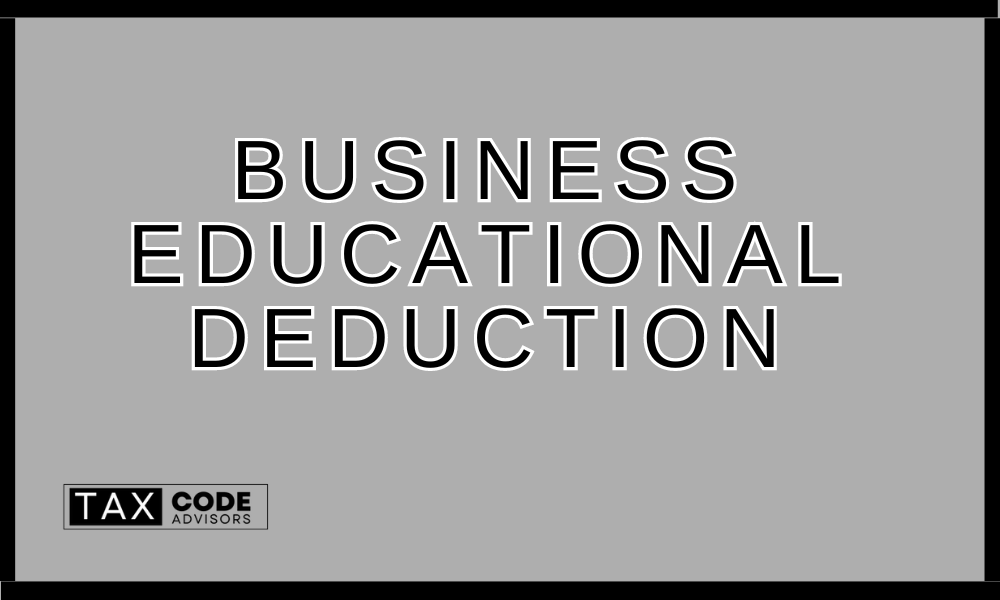
As a business owner, you understand that knowledge is power. Investing in higher education, such as an MBA, a master’s degree, Ph.D., or specialized courses, can lead to more informed decision-making and innovative strategies for your business. But did you know that these educational investments can also offer financial benefits come tax season? This blog post delves into how business owners can leverage tax deductions for higher-level courses to foster business growth while managing costs effectively.
Education can be a valuable asset for a business owner, but it also represents a significant financial commitment. Here's where the IRS provides a respite in the form of education deductions. These deductions are designed to ease the financial load of higher education by allowing business owners to deduct certain education-related expenses from their taxable income.
The IRS stipulates that the education must either maintain or improve skills required in your current business or be required by law or regulations for maintaining your license to practice, status, or job. For instance, if a course on advanced business analytics sharpens your decision-making skills, it’s likely to be considered a qualifying expense.
However, if the education qualifies you for a new trade or business, it’s generally not deductible. This means that if you're a business owner and you decide to pursue a law degree for a potential career change, you likely wouldn’t be able to deduct those expenses.
Here's a closer look at what business owners can potentially write off:
The cost of enrollment in MBA programs, master’s courses, Ph.D. studies, and specialized training sessions can be deductible. This includes related costs like textbooks and necessary supplies.
If the course requires you to travel or commute, these costs may also be deductible. This does not include travel that constitutes a change of work location or that is part of a program of study.
Fees for exams, lab work, and other related expenses can potentially be deducted. For online courses, this might include technology fees or costs associated with purchasing software required for the class.
Business owners typically deduct education expenses on Schedule C of their tax return, which details the profits and losses of their business. The key here is to demonstrate that the education directly benefits the business and is an ordinary and necessary expense.
It’s essential to differentiate between personal and business expenses. Only the costs directly related to your business are deductible.
If the course incidentally benefits your business but is primarily for personal improvement, it may not qualify. Clear documentation on how the course relates to your business can support your deduction.
While we focus on deductions here, don’t forget to evaluate whether you might be eligible for any education-related tax credits. Credits can sometimes offer more savings than deductions, but you generally cannot claim both for the same expenses.
Impeccable records are a must. Keep detailed invoices, receipts, and logs that show how each expense relates to your business. If audited, these records will be vital in justifying the deductions.
Tax laws are intricate and can change yearly. Consider seeking advice from a tax professional, particularly one who specializes in business taxation, to maximize your tax benefits and ensure compliance.
Education is not only an investment in personal development but also a strategic business asset. By taking advantage of the available tax deductions for higher-level courses, you are effectively investing in the future of your business. Approach these opportunities with a clear understanding of IRS rules, maintain meticulous records, and consider working with a tax advisor. With smart planning and strategic deductions, your business can reap the benefits of advanced education while easing the financial burden it entails.